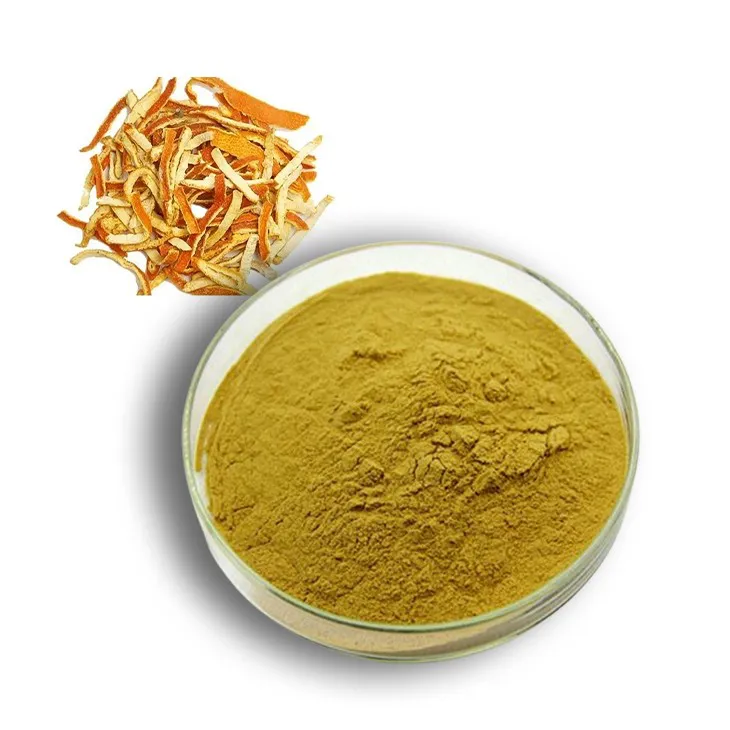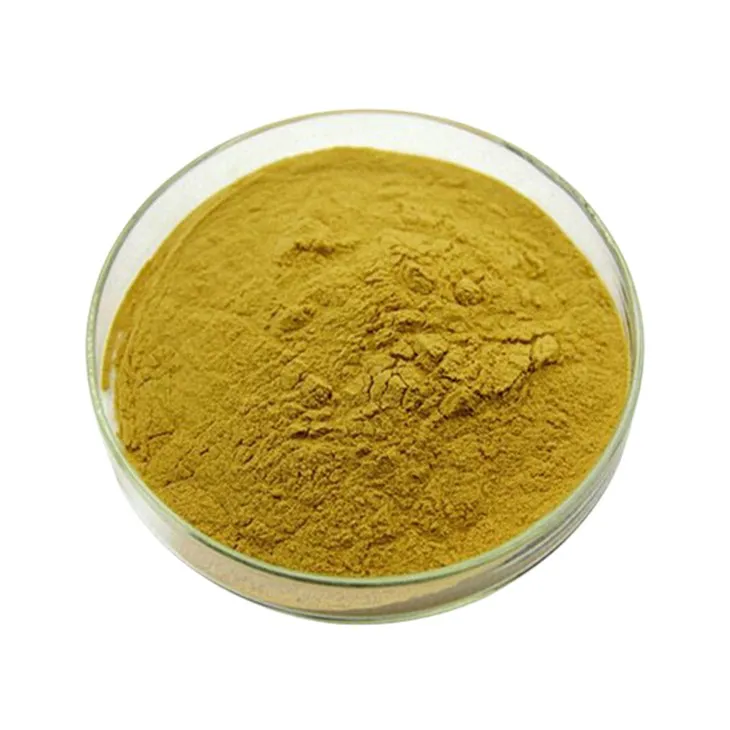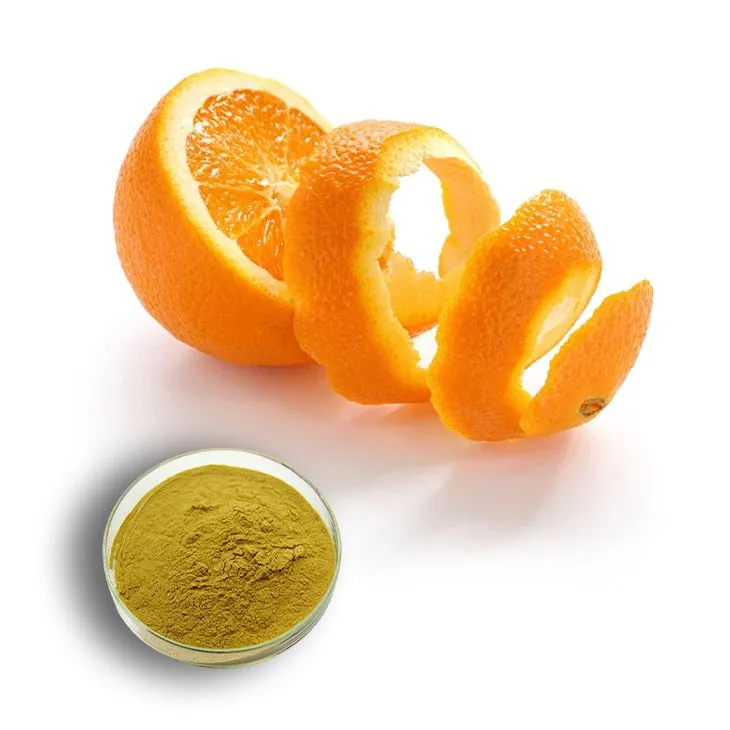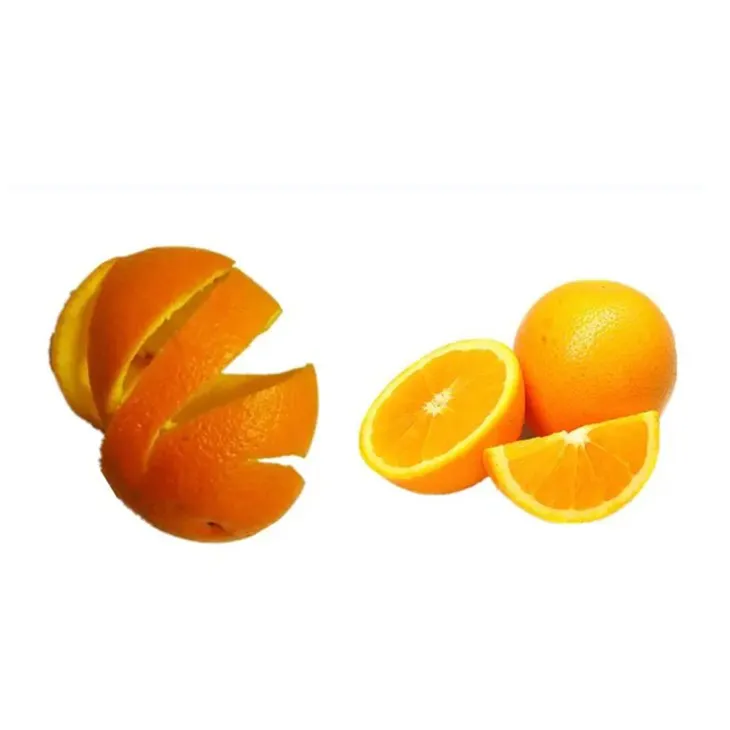- 0086-571-85302990
- sales@greenskybio.com
Hesperidin: Benefits and Consumption Guide
2024-11-13

1. Introduction to Hesperidin
Hesperidin is a flavonoid that is predominantly found in orange peel. However, it can also be present in other citrus fruits to a certain extent. This natural compound has been the focus of numerous scientific studies due to its potential positive impacts on human health.

2. Health Benefits of Hesperidin
2.1 Antioxidant Properties
Hesperidin possesses antioxidant properties, which are crucial for maintaining good health. In the body, free radicals are constantly being produced as a by - product of normal metabolic processes. Additionally, external factors such as pollution, radiation, and certain chemicals can also introduce free radicals into the body. These free radicals are highly reactive molecules that can cause damage to cells, proteins, and DNA. Antioxidants like hesperidin work by neutralizing these free radicals, thereby reducing the oxidative stress on the body.
2.2 Heart Health Support
- Blood Pressure Regulation: Hesperidin may play a role in helping to regulate blood pressure. High blood pressure is a significant risk factor for various cardiovascular diseases. Studies have suggested that hesperidin can affect the blood vessels in a way that promotes healthy blood pressure levels. It may act on the smooth muscle cells in the blood vessel walls, helping to relax them and thus reducing the resistance to blood flow, which in turn can lead to a decrease in blood pressure.
- Cholesterol Level Management: Another aspect of heart health that hesperidin may influence is cholesterol levels. It has been shown to have an impact on lipid metabolism. Specifically, it may help in reducing the levels of low - density lipoprotein (LDL) cholesterol, often referred to as "bad" cholesterol, while potentially having a positive effect on high - density lipoprotein (HDL) cholesterol, the "good" cholesterol. By modulating these cholesterol levels, hesperidin can contribute to a healthier lipid profile and reduce the risk of heart disease.
2.3 Anti - Inflammatory Effects
Chronic inflammation is associated with a wide range of health problems, including autoimmune diseases, certain cancers, and cardiovascular diseases. Hesperidin has demonstrated anti - inflammatory effects in various studies. It can interfere with the inflammatory pathways in the body, reducing the production of pro - inflammatory cytokines. These cytokines are signaling molecules that play a key role in initiating and maintaining the inflammatory response. By reducing their production, hesperidin can help to dampen the overall inflammatory state in the body, potentially providing protection against various inflammatory - related diseases.

3. Sources of Hesperidin
3.1 Natural Sources
- Oranges: As mentioned earlier, orange peel is a rich source of hesperidin. However, the flesh of the orange also contains a small amount of this flavonoid. Eating oranges, whether in the form of fresh fruit, juice (although some of the hesperidin may be lost during the juicing process), or as part of a fruit salad, can be a great way to incorporate hesperidin into your diet.
- Other Citrus Fruits: Besides oranges, other citrus fruits such as lemons, grapefruits, and tangerines also contain hesperidin. While the concentration may vary from fruit to fruit, including a variety of citrus fruits in your diet can increase your overall intake of this beneficial compound.
3.2 Supplements
For those who may not be able to consume enough hesperidin through natural sources, or for individuals who are specifically looking to boost their intake for certain health reasons, hesperidin supplements are available in the market. These supplements come in various forms, such as capsules, tablets, and powders. However, it is important to note that when considering taking supplements, one should always consult a healthcare provider first.

4. Consumption Guide
4.1 Dosage Considerations for Supplements
When it comes to taking hesperidin supplements, following the proper dosage guidelines is crucial. The appropriate dosage can vary depending on several factors, including age, gender, overall health status, and the specific reason for taking the supplement.
Typically, in research studies, dosages have ranged from a few hundred milligrams to several grams per day. However, these are often experimental dosages used in a controlled setting. For general health maintenance, a lower dosage may be sufficient. For example, some supplement manufacturers may recommend a daily dose of around 500 mg for adults. But again, this should be determined in consultation with a healthcare professional.
4.2 Precautions and Potential Side Effects
- Allergic Reactions: Although relatively rare, some individuals may be allergic to hesperidin or other components in the supplement. Signs of an allergic reaction can include itching, rash, swelling, difficulty breathing, or dizziness. If any of these symptoms occur after taking a hesperidin supplement, one should stop taking it immediately and seek medical attention.
- Interactions with Medications: Hesperidin may interact with certain medications. For instance, it could potentially affect the way some drugs are metabolized in the body. If you are taking medications, especially those for blood pressure, cholesterol, or blood - thinning medications, it is essential to inform your doctor before starting a hesperidin supplement. Your doctor can then determine if there are any potential interactions and adjust your treatment plan accordingly.
4.3 Incorporating Natural Sources into the Diet
- Fresh Orange Consumption: One of the simplest ways to get hesperidin from natural sources is to eat fresh oranges. You can have them as a snack, add them to a meal, or use them in a dessert. For example, adding orange slices to a salad not only adds a burst of flavor but also provides a dose of hesperidin.
- Using Orange Peel: Orange peel can be used in cooking or baking. For instance, you can grate some orange peel and add it to muffins, cakes, or even in savory dishes like stir - fries. This way, you can make use of the hesperidin - rich peel without having to consume it in its raw form, which may not be very palatable for some people.
- Citrus - Based Beverages: Making your own citrus - based beverages at home can also be a good option. For example, you can make a refreshing lemon - orangeade by combining freshly squeezed lemon and orange juice with some water and a bit of honey for sweetness. This way, you can enjoy the benefits of hesperidin while also staying hydrated.

5. Conclusion
Hesperidin offers a range of potential health benefits, from its antioxidant and anti - inflammatory properties to its support for heart health. Whether obtained from natural sources like oranges and other citrus fruits or through supplements, it is important to approach its consumption in a safe and informed manner. By following proper dosage guidelines when taking supplements and incorporating natural sources into the diet, individuals can potentially harness the benefits of this flavonoid for their overall well - being.
FAQ:
What are the main health benefits of hesperidin?
Hesperidin has antioxidant properties that fight free radicals in the body. It can support heart health by regulating blood pressure and cholesterol levels, and it also has anti - inflammatory effects.
Can hesperidin be found in natural foods?
Yes, hesperidin can be found in natural sources such as oranges. Orange peel contains this flavonoid.
Are there any other sources of hesperidin apart from oranges?
While oranges are a well - known source, hesperidin can also be obtained from supplements.
Why is it important to follow proper dosage guidelines when taking hesperidin supplements?
Following proper dosage guidelines when taking hesperidin supplements is crucial to ensure safety and effectiveness. Taking too much or too little may not provide the desired health benefits and could potentially cause adverse effects.
How does hesperidin contribute to heart health?
Hesperidin contributes to heart health by helping to regulate blood pressure and cholesterol levels.
Related literature
- Hesperidin: A Review of its Pharmacological and Therapeutic Effects"
- "The Role of Hesperidin in Promoting Health: A Comprehensive Overview"
- ▶ Hesperidin
- ▶ Citrus Bioflavonoids
- ▶ Plant Extract
- ▶ lycopene
- ▶ Diosmin
- ▶ Grape seed extract
- ▶ Sea buckthorn Juice Powder
- ▶ Fruit Juice Powder
- ▶ Hops Extract
- ▶ Artichoke Extract
- ▶ Mushroom extract
- ▶ Astaxanthin
- ▶ Green Tea Extract
- ▶ Curcumin
- ▶ Horse Chestnut Extract
- ▶ Other Product
- ▶ Boswellia Serrata Extract
- ▶ Resveratrol
- ▶ Marigold Extract
- ▶ Grape Leaf Extract
- ▶ New Product
- ▶ Aminolevulinic acid
- ▶ Cranberry Extract
- ▶ Red Yeast Rice
- ▶ Red Wine Extract
-
Golden Seal Extract
2024-11-13
-
Beetroot juice Powder
2024-11-13
-
Passionflower Extract
2024-11-13
-
Milk Thistle Extract
2024-11-13
-
Shikonin
2024-11-13
-
Coconut Water Powder
2024-11-13
-
Curcuma Longa Extract
2024-11-13
-
Echinacea Extract
2024-11-13
-
Baicalin
2024-11-13
-
Cocoa Extract
2024-11-13





















